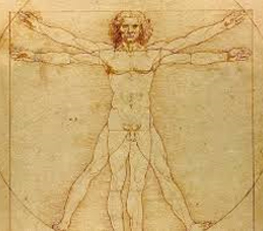(15-05-2018) When cows are raised naturally, cattle production becomes environmentally friendly and sustainable, producing a healthier product
(Natural News) Cattle farming has found itself on the receiving end of lots of criticism over the years, and much of it is justified. In many ways, cattle production is linked with problems like water pollution, overgrazing and general unsustainability. However, by raising cows naturally, cattle production can actually be not only environmentally friendly but also sustainable. Best of all, the end product is better for your health.
This is the finding of a new study by scientists fromMichigan State Universitythat was published in theAgricultural Systemsjournal. After evaluating adaptive multi-paddock (AMP) grass-fed operations and grain-fed, feedlot ones, they concluded that AMP grazing has the potential to offset greenhouse gas emissions, while the end phase of beef production can actually be a net carbon sink. They reached their conclusion by reviewing past studies and carrying out new research over the course of four years at their Lake Station AgBioResearch Center using herds of more than 200 steers.
They looked at statistics from the finishing phase, including daily weight gain and carcass weight, and compared it to the carbon dioxide, methane and nitrous oxide from fermentation and digestion, feed production, farm energy use and manure storage. They also assessed the carbon losses that arose from soil erosion.
With AMP grazing, cattle can graze in high-density areas before allowing for plant recovery, creating a deeper and healthier root system while building organic matter in soil that can absorb available moisture. They did find that the feedlot model was more productive, however, which is why it seems to be the preferred method for profit-minded cattle farmers.
Sponsored solution from CWC Labs:Thisheavy metals test kitallows you to test almost anything for 20+ heavy metals and nutritive minerals, including lead, mercury, arsenic, cadmium, aluminum and more. You can test your own hair, vitamins, well water, garden soil, superfoods, pet hair, beverages and other samples (no blood or urine). ISO accredited laboratory using ICP-MS (mass spec) analysis with parts per billion sensitivity.Learn more here.
Grass-fed beef is more nutritious than grain-fed beef
Grass-fed beefis a far healthier food than the grain-fed varieties. It contains conjugated linoleic acid, or CLA, a type offatty acid that has many benefits for your health. It helps you maintain low body fat levels and conserve muscle tissue, improving body composition. It’s believed that grass-fed cows can have as much as five times the amount of CLA that grain-fed cows offer.
Grass-fed animals also containhigher amounts of omega-3than those that are fed grain. In fact, 60 percent of grass’s fat content ismade up of omega 3. A recent study published in theJournal of Clinical Lipidologyfound that consuming foods that are rich in omega 3 can reduce your risk of deathby as much as 33 percent. They’ve also been shown to help prevent anxiety and depression, promote brain growth in infants, boost eye health, support skin health, and fight the chronic inflammation that can contribute to problems like cancer and heart disease. You can only get omega 3s from your diet because your body doesn’t produce them, and many people overlook grass-fed beef as a source of this powerhouse nutrient.
Contrast this to factory-farmed beef with its antibiotics and growth hormones, and the best way to go is clear. It’s the practices used to raise them that give beef a bad name; the organic, grass-fed varieties can actually be very nutritious while also being far more environmentally-friendly.
Sources for this article include:
ScienceDaily.com
MSU.edu
NaturalNews.com
NaturalNews.com
NaturalNews.com
News
In evidenza
 "L'informazione presente nel sito serve a migliorare, e non a sostituire, il rapporto medico-paziente."
"L'informazione presente nel sito serve a migliorare, e non a sostituire, il rapporto medico-paziente."
Per coloro che hanno problemi di salute si consiglia di consultare sempre il proprio medico curante.

Informazioni utili
-
Ricette a zona
-
Tabelle nutrizionali
-
Tabella composizione corporea
-
ABC della nutrizione






